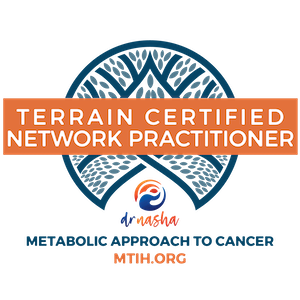What Is Naturopathic Medicine?
Naturopathic Medicine is a distinct, unique and comprehensive approach to disease diagnosis, treatment and prevention utilising nature-based therapies.
The primary focus is to provide the least invasive, most efficacious, non-toxic therapies that address the cause of illness, not simply the suppression of symptoms.
The natural healing tradition is ancient, stemming from before the time of Hippocrates. Naturopathic medicine draws upon this historic, therapeutic knowledge and combines it with modern, science-based medical research. Naturopathic doctors maintain an open-minded perspective allowing for the use of any therapy, old or new, as long as it adheres to the core philosophy and principles of Naturopathic medicine.

This video from Bastyr University explains the basic principles of Naturopathic Medicine.
Principles and Philosophy of Naturopathic Medicine
These principles form the characteristic foundation and core of Naturopathic medicine. Naturopathic doctors aim to integrate every one of these principles into all aspects of diagnosis and treatment.
The Healing Power of Nature (Vis Medicatrix Naturae)
In every living organism there exists an inherent ability of the body, mind and spirit to heal itself. Naturopathic doctors stimulate this innate healing power by using methods that are in harmony with this natural process.
First Do No Harm (Primum Non Nocere)
Naturopathic doctors choose the least invasive, most non-toxic treatment that will restore health. This minimizes harmful side effects and avoids the simple suppression of symptoms.
Identify and Treat the Cause of Disease (Tolle Causam)
Whereas conventional medicine focuses on alleviating symptoms, Naturopathic medicine uses these symptoms as a guide to identify the underlying cause of illness. It is only through removal of the cause that complete health can be restored.
Treat the Whole Person
Disease process results from a complex interaction of mental, emotional, physical, spiritual, genetic, social and environmental factors. Naturopathic doctors consider all of these factors in each patient, in order to most optimally individualize treatment of the whole person.
Emphasize Prevention
At no other time in history has preventive medicine been so critical to one’s health as it is today. In today’s world, more stressors are impinging upon our lives than ever before, from hectic lifestyles to toxins present in our food, air and water. Naturopathic doctors teach their patients how to avoid these stressors, thereby helping them maximize health and prevent chronic disease.
Doctor as Teacher (Docere)
Naturopathic doctors act as guides for their patients, empowering them to take responsibility for their own health. As teachers, they help the patient fully understand their disease process and the rationale for treatments prescribed.

Natural Therapies Utilized by Naturopathic Doctors
Clinical Nutrition
Nowadays it is common knowledge that diet and nutrition affect health. Naturopathic doctors not only teach the components of a healthy diet but also recommend dietary changes and nutritional supplementation that are specific to a particular condition.
Botanical (Herbal) Medicine:
Herbal remedies have been used by all cultures since the beginning of time. Many modern pharmaceutical drugs are derived from plants, but the plants are altered, refined, and synthetically produced. Naturopathic doctors believe the unaltered, natural form of the plant provides the most desirable medicinal response with fewer to no side effects.
Homeopathy
Homeopathy is a form of medicine that utilizes dilute, potentized remedies made from plant, animal and mineral substances. It is based on two fundamental principles:
- The greater the dilution of a remedy the more powerful are its medicinal effects.
- Like cures like, which means a dilute, potentized substance will produce the same symptoms as the disease when given to a healthy person.
CranioSacral Therapy
Craniosacral therapy is a hands-on approach that involves “listening with the fingers” to the body’s subtle rhythms and any patterns of inertia and congestion. The emphasis of treatment is to encourage and enhance the body’s own self-healing and self-regulating capabilities, even in the most acute pathologies.
Diet & Lifestyle Counseling
Naturopathic doctors help you identify, set and achieve goals to create a healthy lifestyle and diet as well as avoid environmental risk factors. They are trained to foster the therapeutic relationship through active, empathic listening, identifying major and minor psychological issues and employing treatment.
Hydrotherapy
Hydrotherapy is an ancient method of treatment using water in any of its forms (hot or cold, ice or steam) to treat a wide range of disease conditions. Naturopathic doctors are trained in a broad variety of hydrotherapy techniques including sauna, immersion bath, hot/cold packs, colonic irrigation, sitz bath, shower, etc.

Naturopathic Doctor Training
Naturopathic doctors are the primary care, general practitioners of natural medicine. As in conventional medical school, applicants must show competency in specific, pre-medical requirements before being accepted to a U.S. Department of Education accredited Naturopathic medical school.
After acceptance, N.D. candidates complete a rigorous, four-year academic and clinical program. This program combines the study of western medical sciences (such as anatomy, physiology, pathology, microbiology, immunology, clinical and physical diagnosis, laboratory diagnosis, cardiology, gastroenterology, gynecology, etc.,) with Naturopathic therapeutics and philosophy.
Training also includes an applied, clinical apprenticeship during the last two years. Naturopathic doctors must then pass standardized, federal and state licensing exams in order to obtain a license in those states that offer licensure.


